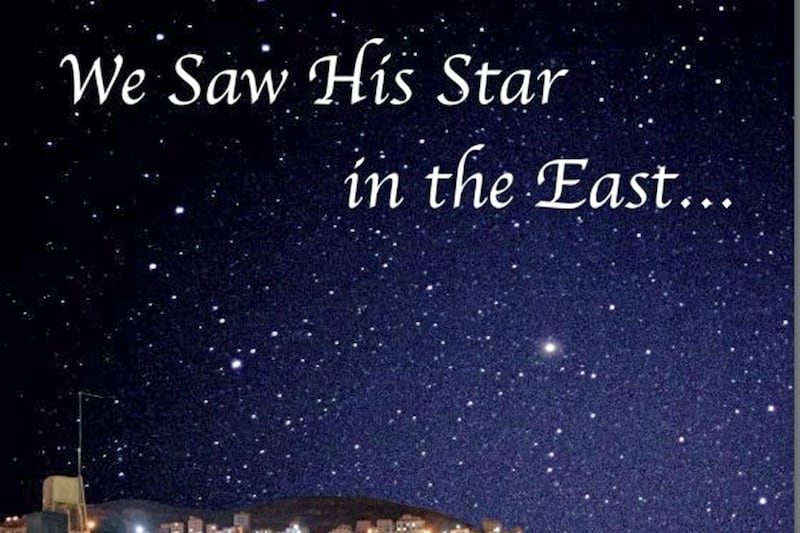THIS year's Week of Prayer for Christian Unity - which began on Tuesday and runs to January 25 - is following the theme of 'We Saw His Star in the East'.
Materials have been prepared by Churches in the Middle East and pay particular attention to the role of the Magi in the Christian story: "The Magi have sometimes been seen as a symbol of the world's diversity - different religions and cultures - that comes to pay homage to the Christ-child. The story might therefore represent the unity of all created that God desires."
"The Magi travel from far-off countries, and represent diverse cultures, yet they are driven by the same hunger to see and know the new-born king and are gathered into the little house in Bethlehem in the simple act of giving homage," says an introduction to this year's resources.
"In this we can find a metaphor for Christian unity: that is, of different Christian peoples drawn together in their common search to recognise Christ, to know him and to worship him and witnessing to wider need for unity and to overcome injustice."
The writers point out that the Middle East "was, and still is, characterised by conflict and strife, tainted with blood and darkened by injustice and oppression".
"Since the Palestinian Nakba (the exodus of Palestine's Arab population during the 1948 war) the region has seen a series of bloody wars and revolutions and the rise of Islamic extremism," they say.
"The story of the Magi also contains many dark elements, most particularly Herod's despotic orders to massacre all the children around Bethlehem who were two years old or under (Matthew 2:16-18)."
The cruelty of these narratives, they say, "resonates with the long history and difficult present of the Middle East".
The region is central to the Christian story: "It was in the Middle East that the Word of God took root and bore fruit... And it was from this East that the apostles set out to preach the Gospel to the ends of the earth (Acts 1:8).
"The Middle East has given thousands of Christian witnesses and thousands of Christian martyrs.
"And yet now, the very existence of the small Christian community is threatened as many are driven to seek a more secure and prosperous life elsewhere. Like the light which is the child Jesus, the light of Middle Eastern Christianity is increasingly threatened in these difficult times."
Jerusalem, meanwhile, is a powerful symbol for Christians "because it is 'The City of Peace', where all humanity was saved and redeemed".
"But today peace is missing from the city," they say. "Even prayer in Jerusalem has become subject to political and military measures. Various parties stake their claim to it and disregard others.
"Jerusalem was the city of kings, indeed the city that Jesus will enter triumphantly, acclaimed as king (Luke 19:28-44).
"Naturally the Magi expected to find the new-born king revealed by the star in this royal city. However, the narrative tells us that, rather than being blessed by the birth of the Saviour king, the whole of Jerusalem was in tumult, much as it is today. Today, more than ever, the Middle East needs a heavenly light to accompany the people."
They add: "The Covid-19 global pandemic; the economic crisis that has followed and the failure of political, economic and social structures to protect the weakest and most vulnerable; and the racism that blights our communities have underlined the global need for a light to shine in the darkness.
"The star that shone in the East, (the Middle East), 2,000 years ago still leads us to the manger, to where Christ was born. It draws us to where the Spirit of God is alive and active."
More information and resources on the Week of Prayer for Christian Unity can be found on the Churches Together in Britain and Ireland website.








